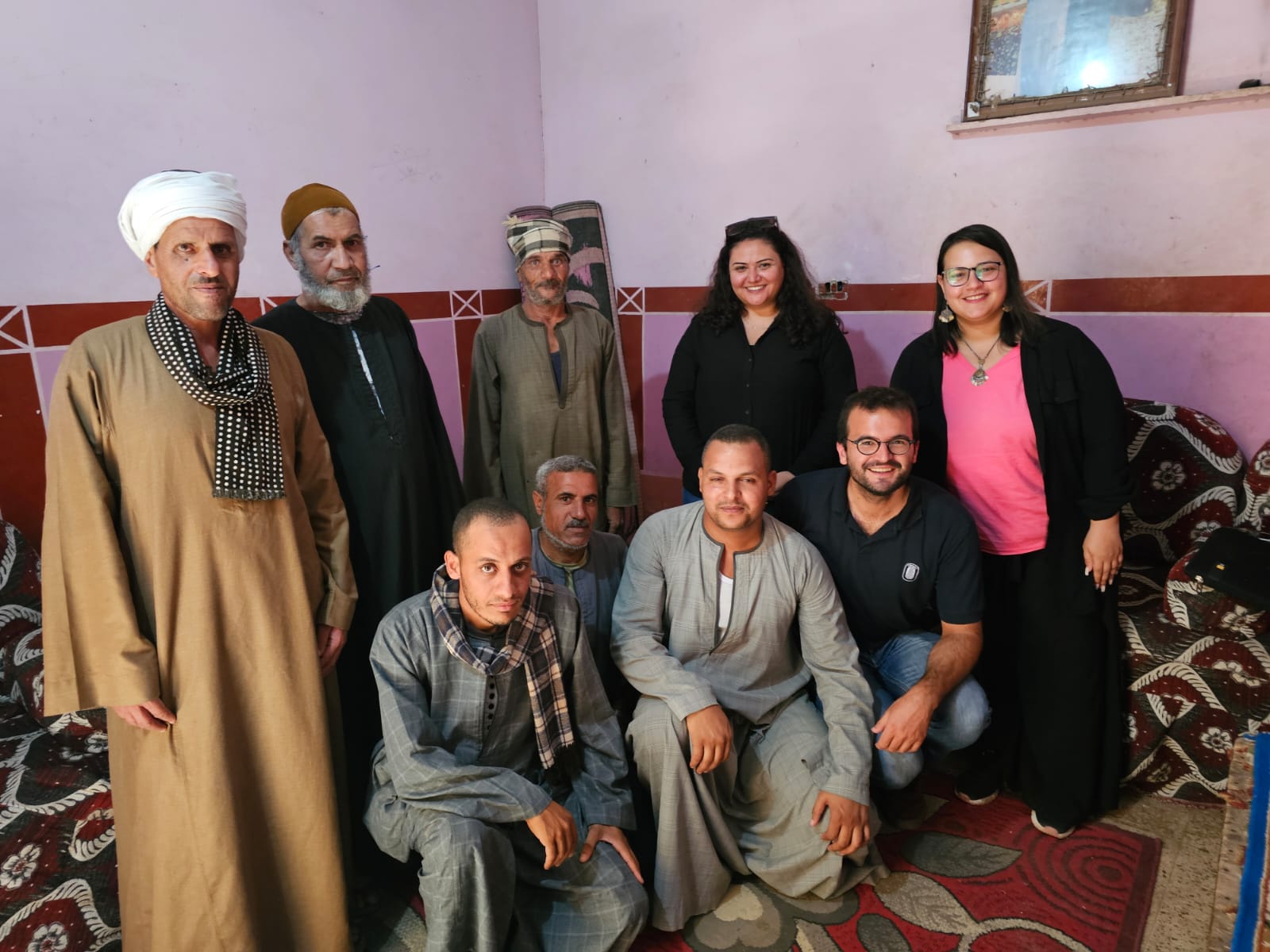Adaptation of Small Egyptian Farmers to Climate Change
Vulnerable Populations Facing Drought

The CERDI is leading a project on the adaptation to climate change of smallholders in Upper Egypt, a region particularly affected by rising temperatures and extreme weather events, which manifest as prolonged summers and water shortages. This climate evolution causes yield losses and price increases, essentially threatening the agricultural production of wheat and corn, thereby endangering the country's food security. Millions of farmers risk being pushed into extreme poverty and the labor market could be significantly impacted.
Jules Gazeaud, a CNRS research fellow, initiated this project, which he directs and for which he has obtained support from the Abdul Latif Jameel Poverty Action Lab (J-PAL), an international research center that conducts research to guide public policies in the fight against poverty. Jules Gazeaud has extensive expertise in economic analysis programs and the evaluation of public interventions in developing countries.
Jules Gazeaud, a CNRS research fellow, initiated this project, which he directs and for which he has obtained support from the Abdul Latif Jameel Poverty Action Lab (J-PAL), an international research center that conducts research to guide public policies in the fight against poverty. Jules Gazeaud has extensive expertise in economic analysis programs and the evaluation of public interventions in developing countries.
Exploring Causes, Impacts, and Solutions
This project will explore the economic impacts of climate change. It aims to:
- Understand and evaluate the adaptation strategies of small farmers.
- Assess the effectiveness and impact of institutional information on climate change and adaptation strategies. Inform public policies and assist agricultural households.
- Evaluate the impact of this agricultural transformation on the labor market.
- Understand and evaluate the adaptation strategies of small farmers.
- Assess the effectiveness and impact of institutional information on climate change and adaptation strategies. Inform public policies and assist agricultural households.
- Evaluate the impact of this agricultural transformation on the labor market.
The Team
Jules GazeaudCNRS, CERDI
Personnal website
Nada Rostom
University of Antwerp, Institute of Development Policy (IOB)
Method: Econometric Analysis and Randomized Experiments
The team uses the latest econometric techniques and the RCT (Randomized Control Trials) method, an effective experimentation method for understanding causal relationships and evaluating the effectiveness of public interventions.A preliminary study was conducted in the form of a qualitative survey in 2024 in the governorate of Assiut in Upper Egypt. It allowed the team to exchange with small farmers about climate change and the impact of rising temperatures on their activity and to study the practices they implement to alleviate the decline in production and cope with crop losses. Although the authorities disseminate information and advice, some farmers are still unaware of the information and recommendations from the Ministry of Agriculture.
One thousand five hundred households are participating in this study. They will be divided into two groups, a treatment group and a control group. The households will receive information on climate change and the possibilities of adapting their production methods. The study also includes an employment component. Some participants of the study will be offered support by a specialized agency, Forasna.
Partners
Local partners will be involved in this project, including agricultural engineers and climate experts from the Ministry of Agriculture. The team will also collaborate with AERDRI, the institute in charge of agricultural and rural development. Forasna, one of the most important recruitment agencies in Egypt, will also be involved in the project to test opportunities on the labor market for the redeployment of workers and to offer seasonal jobs. The data it holds on the labor market will be valuable for this study.This research program is funded by several partners. The support of the J-PAL Hub for Advanced Policy Innovation for the Environment will enable the collection of survey data. Additional funding has been provided by the CNRS, the University of Antwerp, and the Université Clermont Auvergne.

